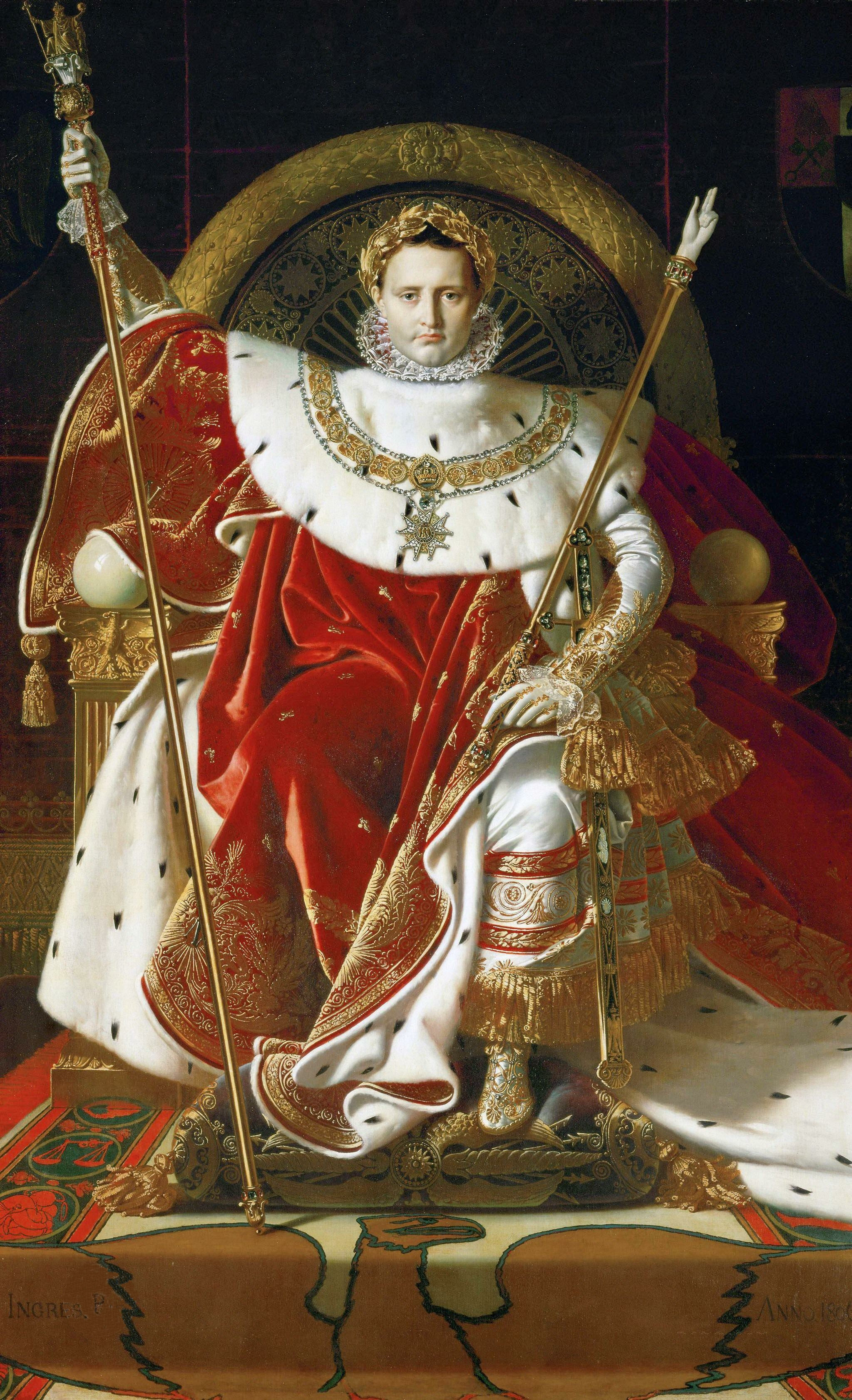The Settlement with the Catholic Church:
Napoleon himself was not a religious man: he regarded religion mainly as an advantage in political discourse. Especially in France, Napoleon realized that Catholic revival was sweeping the nation. Although many Jacobins protested to Napoleon's concordat with the Vatican, Napoleon's intentions were not at odds with the ideals of the revolution. The Church did gain more power than it once had; however, Napoleon and the other heirs of the Revolution gained much more. By signing the concordat, the pope had finally recognized the Republic and the Vatican agreed to cede the former Church lands confiscated during the Revolution. Furthermore, Napoleon's concordat maintained the Revolutionary sentiments that religion would not dictate political oder in France, as the papal authority virtually gained no power to influence the French government. Instead, Napoleon's actions directly supported the ideals of religious freedom of the Revolution. Napoleon had only stated that Catholicism was the religion of majority in France, not the state's religion. He put Protestant minister of all denominations as well as Catholics on the state payroll in order to quell the notion of an established state religion. Ultimately, the ideal of religious freedom for all men continued in under the rule of Napoleon. Furthermore, by coming to an agreement with the Church, Napoleon dispelled the counter-revolutionary forces whose main claim was that the Republic was godless.
The Codification of Laws and the New Education System:
Napoleon established five codes: the Civil Code, the codes of civil and criminal procedure, and commercial and penal codes. The codes assured legal equality to all French citizens, establishing that they all had the same civil rights. The codes ultimately, forbade privilege of birth, allowed for religious freedom, and established that government jobs would be given to the most qualified individuals, as careers became open to talent and not birth right. As established by the Codes, qualifications became established by education and not privileges of birth. Such policies were in keeping with the Revolutionary ideals of liberty and equality for all. However, intellectual and social life in France was strictly censored under Napoleon. The freedom of press and speech was very limited as Napoleon suppressed any form of criticism of his reign. Although Napoleon excelled in providing the French with better education and professional advancement, his policies were ultimately hindered by his government's suppression of intellectual discourse and analysis.
Conclusions:
When considering all aspects of Napoleon's domestic policies, one can conclude that the abuses of the Old Regime had been defeated. However, it would be incorrect to then establish that because of this, Napoleon fulfilled the promises of the Revolution. Although he was successful in legally solidifying certain aspects of liberty, fraternity, and equality, his motives were inherently pragmatic. Although education was provided to more people, the use of this new found intellectualism was hindered by Napoleon's use of secret police and his suppression of the press. For instance, when a handful of professors at the National Institute questioned, in writing, some of Napoleon's policies, Napoleon immediately censored both their writing as well as their departments at the Institute. Furthermore, religious freedom was tolerated not because, as the Revolutionaries argued, it was the inherent right of all men, but instead in order to establish a sense of unity and subdue the people. Napoleon was a pragmatic ruler, each of his policies rendered him greater power and control over the nation. Furthermore, Napoleon's biggest action opposite the beliefs of the Revolution was his crowing as Emperor of France. Unlike the Declaration of the Rights of Man, which entrusted the republic to the people of France, Napoleon's new constitution in 1802 declared that the republic was now entrusted to the emperor.
Napoleon as the Emperor of France.
